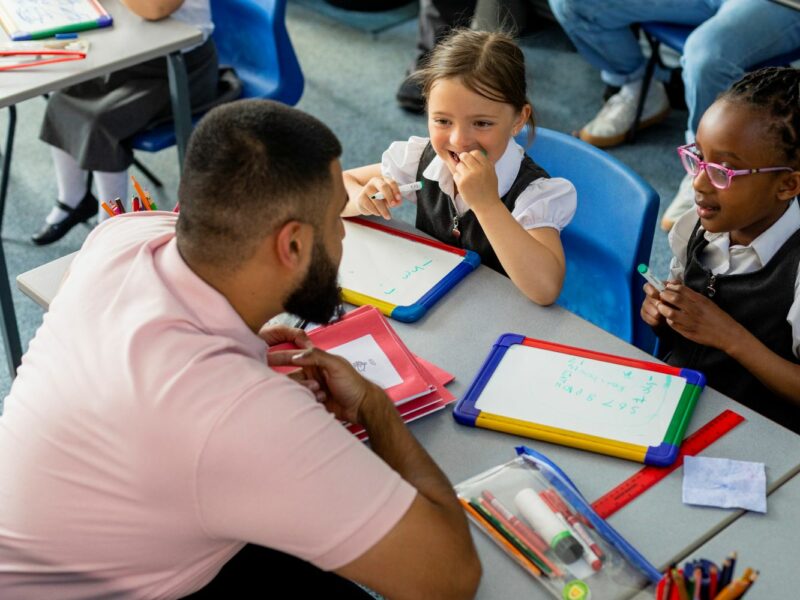EHC needs assessments
Education, Health and Care (EHC) Needs Assessments
An education, health and care (EHC) needs assessment is a detailed look at the special educational needs (SEN) of a child or young person and the support they may need in order to learn. It is the first step to getting an Education, Health and Care plan (EHCP). An EHCP can result in additional support and funding for a child or young person with special educational needs (SEN).
An EHC needs assessment is necessary to determine if an EHCP is required, however it is important to note that asking for an EHC needs assessment does not guarantee that an EHCP will be provided.
Most children with SEND will have their needs met without an EHCP. However, if more help is needed, a request to your local authority (LA) for an EHC needs assessment can be made.
When is an EHC needs assessment necessary?
The education or early years setting your child attends can often provide help through SEN support. This means that they make additional or different provision from that provided to most other pupils to meet their needs. Sometimes other professionals will give additional advice or support to help your child learn.
Some children need more help than the school can provide. If your child does not make progress despite everything the school has tried, an EHC needs assessment might be the next step.
An EHC needs assessment can only be requested where a child or young person has, or may have, special educational needs. It does not apply where there are only health or social care needs.
If a child is of compulsory school age or younger, their parent or carer can make the request. This includes children aged 0 to 5, where a request can be made if a parent or carer feels that a child will need extra support at nursery or when they start school.
What the law says

If a local authority receive a request for an assessment from a parent/carer, young person, school or college, it must consider:
- whether the child or young person has or may have special educational needs, and
- whether they may need special educational provision to be made through an EHCP
If the answer to both of these questions is yes, the LA must carry out an EHC needs assessment.
This is set out in the Children and Families Act 2014, section 36(8)
Also, paragraph 9.14 of the SEN and Disability Code of Practice 2015 contains information on what the LA should consider:
In considering whether an EHC needs assessment is necessary, the local authority should consider whether there is evidence that despite the early years provider, school or post-16 institution having taken relevant and purposeful action to identify, assess and meet the special educational needs of the child or young person, the child or young person has not made expected progress.’
When deciding whether to carry out an EHC needs assessment, the local authority should look at the following:
- how well the child or young person is doing in learning or development and how quickly progress is being made
- what kind of special educational needs are present, how serious they are and how they affect learning
- what support the school, college or early years setting has already provided
- whether any progress has only happened because of a high level of extra help, more than what is usually given to others of the same age
- information about physical health, emotional wellbeing, social development and any support already given by health or care service.
Paragraph 9.13 of the SEND Code of Practice states:
A local authority must conduct an assessment of education, health and care needs when it considers that it may be necessary for special educational provision to be made for the child or young person in accordance with an EHC plan.
This means that you do not have to prove that an EHC plan is definitely necessary to obtain an assessment, you just have to show it may be necessary. If you think your child needs more help than the school can provide, you can ask for an assessment.
Further information on the criteria that the local authority should follow can be found in the SEND Code of Practice, section 9.3 and 9.14 to 9.16.

Requesting an EHC needs assessment
A request for an assessment can be made to the local authority by:
- parents or carers
- young people, aged 16 to 25
- a school, college or early years setting – with your knowledge and agreement
It is always a good idea to talk to the school, college or early years setting before asking for an EHC needs assessment.
Other professionals like doctors or social workers can bring a child or young person to the attention of the local authority, but only the above can formally request an assessment.
You can ask for an EHC needs assessment by writing a letter to your local authority. Keep a copy of the letter for your records. You may wish to gather evidence to support your request such as:
- school reports detailing difficulties and the support that has been provided
- request any assessments that have been done by teachers, the SENCO (Special Educational Needs Coordinator) and other school staff
- medical reports (if applicable) from GPs, paediatricians or therapists (i.e. speech and language or occupational therapy)
- keep records of any external reports i.e. educational psychologist (EP), CAMHS/NELFT, autism assessment.
- documents showing communication with school about concerns and support
In your letter, explain why you think your child has or might have special educational needs (SEN) which may include things like:
- learning and thinking: what does the child or young person find difficult at school? Do they need help with reading, writing, numbers or understanding instructions?
- talking and understanding: Can they speak clearly? Do they understand what others say to them?
- feelings and behaviour: How do they manage their emotions? Do they struggle with confidence, rules or making friends?
- senses and movement: Are they sensitive to things like noise, light or touch? Do they have any physical or movement related needs?
- other needs: Do they need help with things like toileting, eating, leaving the house or staying safe?
You can also explain why you think your child may need support through an EHCP.
IPSEA has a free template letter you may wish to download and use.
Some local authorities use online systems or forms (sometimes called ‘hubs’). The law says there is no special form or system you have to use. The LA cannot say your request is invalid just because you didn’t use their form or website.
If the LA refuses to assess
You have the right to appeal to the SEND Tribunal.
You have 2 months from the date of the decision letter, or 1 month from the date of the mediation certificate — whichever is later.
You can find more information about what this means and how to appeal here.
The LA must send you a letter explaining your right to mediation and appeal.
Information gathering for the assessment
If the local authority agrees to carry out an EHC needs assessment they must involve the parent/carers and child or young person throughout the process. This is set out in the SEND Code of Practice section 9.21.
Local authorities must consult the child and the child’s parent or the young person throughout the process of assessment and production of an EHC plan. They should also involve the child as far as possible in this process. The needs of the individual child and young person should sit at the heart of the assessment and planning process.
If your views haven’t already been shared, the local authority should make sure this happens as soon as possible.
They will ask for information and advice from different people to understand:
- a child or young person’s education, health and care needs
- the goals or outcomes that are hoped for
- the support that may be needed to help a child or young person reach those goals or outcomes
The SEND Regulations 2014, Regulation 6(1), sets out a list of people your LA must get advice and information from during an assessment, these include:
- you (the parent or young person)
- a child/young person’s early years setting, school or college
- healthcare professionals i.e. doctor or therapist
- an educational psychologist (EP)
- social care services
- any other person the local authority thinks is appropriate
- anyone you reasonably ask them to contact i.e. speech and language therapist, occupational therapist or CAMHS/NELFT
If a child or young person has a hearing or vision impairment the educational advice must include input from a suitably qualified teacher in that area. This is set out in SEND Regulation 6(2)
Sometimes information may already be available because professionals have been working with your child. 9.47 of the SEND Code of Practice states:
The local authority must not seek further advice if such advice has already been provided (for any purpose) and the person providing the advice, the local authority and the child’s parent or the young person are all satisfied that it is sufficient for the assessment process. In making this decision, the local authority and the person providing the advice should ensure the advice remains current.
Once the local authority has all the information and advice it must decide whether a child or young person needs an Education, Health and Care plan.
Sometimes the local authority will decide that your child or young person has special educational needs that can be met through SEN support. If this is the case the local authority must tell you of its decision within 16 weeks of receiving a request for an EHC needs assessment. The local authority must also tell you about your right of appeal.
If the local authority decides an EHC plan is necessary it must first write a draft plan.



